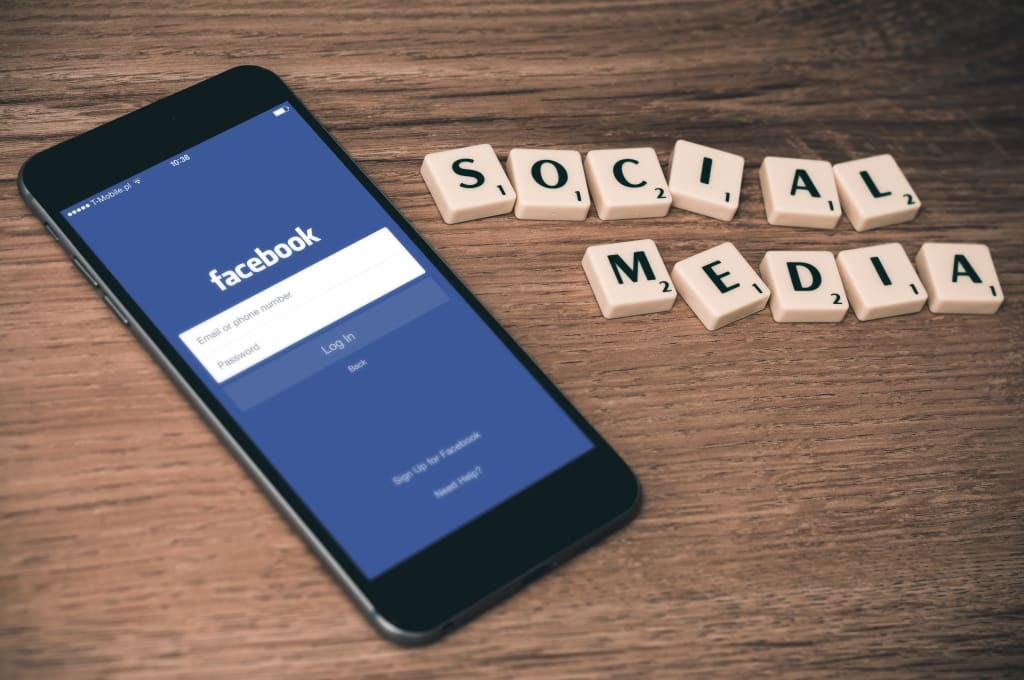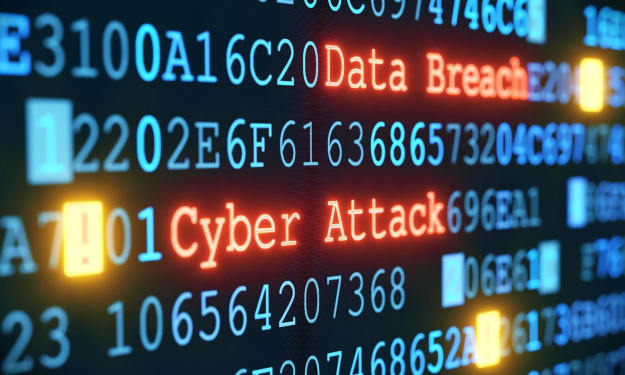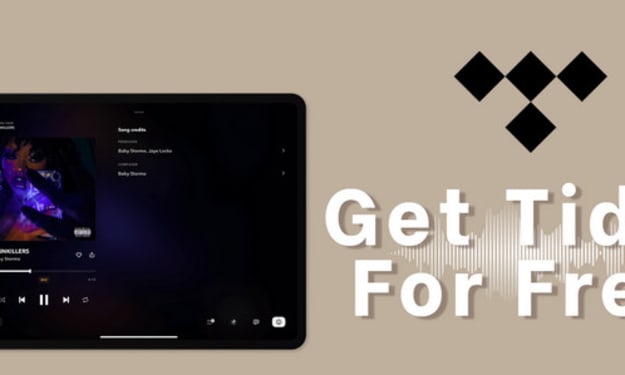Can Social Media Really Be Bad for You?
Security experts think there may be some bad parts.

I’ve written about articles I’ve read on my technology blog and have also listened to podcasts in regards to the subject. While I just recently posted about the Equifax breach on the new 01.media site posted to the web through the Vocal platform, I recently saw after my article published there, an article entitled: "Social Media Is Bad for Your Soul" by ALLISON K. JONES and it got me to thinking about posting my own thoughts about the subject. Mind you, I’ve been talking about this type of thing for awhile now, oversharing, posting where you are, telling people what you’re doing or eating, etc. are just indicators. Let's talk about what caught my attention in the article I read through Vocal’s 01.media site.
The article has some great points that I thought were pretty good in regards to the aspect of posting pictures to the various social media sites, but I really think this goes beyond the posting of pictures.
In part: the article says: “If you have open accounts you leave yourself vulnerable to anyone who goes looking. Know what that means? Someone with an internet connection and a smart phone can find out virtually anything about you. For instance, if on your Instagram there’s a picture of you at Christmas with a boyfriend, and then in February there’s a tweet about a nasty breakup, this person already knows you’re single, and the kind of guy you are interested in. If they look at your Facebook, they’ll know where you work, where you went to school, family, friends, and whatever else you have up for the world to see."
I completely agree with this portion of the article. We can take this a step further. People in the blind community love to post their whereabouts through foursquare, or other sharing platforms. I do this occasionally, although I was really just checking out how something like this worked. I only did it with one place, and I did it when I went there. Now, I rarely if ever do it, as I don’t think there is much of a point. I don’t do that with every site I go to either. If you do it enough, you are telling people that you aren’t at home. If you check in at home, you are telling people where you live. As a blind individual, if I were living on my own, I would definitely not post where I lived, and remember, all of that posting puts a trail on your whereabouts so people can take advantage of you whether you are blind, disabled in other ways, or able-bodied.
Luckily for me, my house is not shown through the app I used, and the name of the app isn’t that important for this article. What is important, is the fact that I’ve quit posting my whereabouts, and did it for a bit to see how it worked, and yes, I got an award at this place I checked into, but it didn’t matter.
Here’s something else that caught my attention in this article. “We are in an age where cyberbullying is at an all-time high, but it’s not just cyberbullying anymore, now there are branches of it. This is called 'social bullying.' One in three women says that harassment on social media has gotten worse over the last year. 57 percent of women say they’ve received negative comments online. Of those, 25 percent say they’ve been called names like 'bitch' or 'slut.' Eight percent say they’ve received threats like 'you deserve to die.' And the worst thing is, most people will see someone being bothered online and do nothing to stop it. Yes, that might make you a target, but if we live in a world where nobody gets defended then all we’d ever do is harass each other.”
This really hit home for me, and it reminded me of my article: "Bullying, Is This Just a Disability Problem?"
I posted this article in May of this year on Vocal’s Longevity site, though I think I put it elsewhere and they put it there for me. In this article, I talk about the fact that everyone can bully, and that it is not just a disability problem. Several books are talked about in that article, and even one who was disabled was doing such activities. He ended up getting caught when he turned 18, and the FBI arrested him for his crimes.
The fact that this is happening now on social media doesn’t change anything. The gentleman in question will be scheduled for release in 2018, and he is not going to know how things have changed. I still remember this quite well, and this gentleman even went after my girlfriend at the time. The only thing we could do was to change our telephone numbers. You can’t do that online, except for your e-mail address, and that won’t stop him because you have to use e-mail for communication.
I use YouTube as a source of getting news. I subscribe to several well known companies and people I know. I respect the companies I follow, and the people I know. I even started my own channel, and want to use it for White Cane Travel and its particular teachings I would like to do. The only thing that I could see YouTube bad for is the spread of the bullying via video. The same people talked about in these books I read on the subject through the braille and audio download service of the NLS Library could now spread their hate through videos and other messages of that sort.
You can search for anything, and see hateful comments in regards to whatever it might be. Could it all be considered bullying? This can be the question that we might just ask.
There is another aspect of this I’d like to take a look at. Have any of you ever called the telephone systems that are set up for people to meet and communicate with each other? There are many different lines around the country and world that you could call. Some of the systems are free, some are paid.
I really want to bring this up because this type of activity goes on these systems for as long as I remember. I hear people on the boards of these systems calling each other names from fags, pussies, assholes, bitch, sluts, the whole bit. I have really tried not to get involved with this behavior, although I may have my opinion of someone, I am really trying not to call them any types of names because it isn’t going to solve anything, and it can hurt my image.
I’ve been dealing with someone lately I personally don’t like. They are in the same agency I’m in at this time, and this agency helps people find jobs. This person has done a lot of things that I personally did not like, and I have not said anything bad about them because I really don’t know them that well, and I do get along with them enough to get the work done. I don’t sit there and call them names like I’ve heard people do on the phone lines. One person would say: “I’m not an asshole, I’m not a prick,” say something else and then say “asshole” and turning it around back at them. This is an example only, and I hear it on the phone lines all the time now. It can generate online, and if you take nothing else out of this, its the image you present yourself.
There is one more aspect of this I’d like to touch on before my closing comments. This article entitled, "It’s Back to School Time, So How Do I Keep My Child Safe Online?" was posted to the Trend Micro blog on August 30th. I recently read this article, and I think this ties into what is part of both this article and the prior article I linked to at the top of this post. This article talks about how us adults should teach our children what is safe, and what is not safe. We should make sure that we are available to answer their concerns and their questions about what they are seeing.
One thing I think really hit home when I took a break and read this article. The paragraph reads: “Threats are everywhere. In fact, smartphone attacks surged a massive 400%in 2016, according to Nokia figures. It takes just one misplaced click on an email link or attachment, or in an SMS/message, to trigger a malware download on an unprotected phone that could steal your child’s personal information—or run up huge bills by calling premium rate numbers. Phishing emails are particularly hard to spot, as they’re spoofed to appear as if they’ve been sent by a legitimate company or institution. Some malware can be triggered if your child merely visits a compromised website.”
This is a big deal. If us adults are to be as safe as we can, it is important for children to learn, especially since they are now using this technology as young as 5, but even tablets can be used by children as young as three according to a study. Even while verifying this data, this article says that children as young as one are using technology successfully.
While there are different types of studies, we need to learn how to use the technology effectively, and it starts with the adults. Read the article that I first read, then read this one. Make your own decision on how you want to use tech with your kids. Be safe out there, teach them what is safe. If there are bullying issues as adults, it is only because it started on the playground with no consequences. The playground, and videos online or off, may play a part on how people treat each other.
Are there any other comments you think you could take from that article linked at the beginning of this article? I’d be interested in your thoughts in the matter. Please also check out the other articles I’ve linked to in case you want to learn more about what they are saying as well.
Please find contact information in my biography, or contact me through my website. Where you can read about me, my projects, and my directory of podcasts including the technology podcast in which I cover lots of things tech. Thanks so much for reading, and make it a great day!






Comments
There are no comments for this story
Be the first to respond and start the conversation.